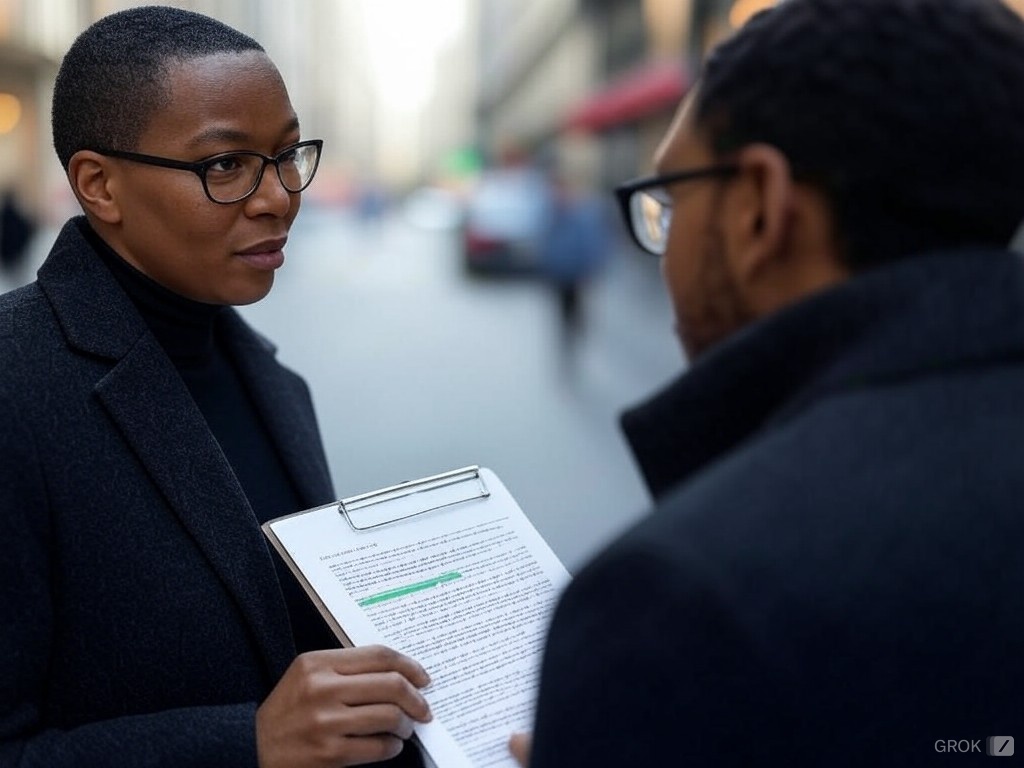Collapsing Response Rates Are Making Statistics Harder To Collect

24 December 2024
The latest release of the UK's Labour Force Survey hides a troubling trend, one that threatens the integrity of this once-trustworthy data source: individuals are simply not responding to surveys as they used to, even official, national surveys.
When the Labour Force Survey began in the 1970s, it was heralded as a revolutionary tool for understanding employment patterns across the UK. With its vast sample size and carefully constructed methodology, it became the backbone of labour market statistics, informing everything from government policy to private-sector decision-making. However, in recent years, response rates have been collapsing, and the consequences are beginning to ripple outward in unexpected ways.
Picture this: you’re at home, enjoying a rare moment of peace after a long day, when your phone rings. It’s not a friend or family member but a polite voice asking if you’d be willing to participate in a government survey about your work and household. In the 1980s, this call might have been seen as a civic duty—a chance to contribute to the national good. Today, it’s more likely to be met with skepticism, irritation, or a swift hang-up.
This shift is not merely anecdotal. According to data from the Office for National Statistics (ONS), the response rate for the Labour Force Survey has been steadily declining for years, falling from over 80% in its early decades to just over 50% in recent assessments. This isn’t unique to the UK. Around the world, survey response rates are plummeting as people grow more wary of sharing personal information, more protective of their time, or simply harder to reach.
At first glance, this might seem like a niche issue—the kind of problem that concerns only statisticians and policy wonks. The implications, however, are vast and growing. Reliable data is the bedrock of good decision-making. Without it, governments struggle to allocate resources effectively, businesses flounder in their attempts to forecast demand, and researchers find their models increasingly riddled with holes. The pandemic underscored this point dramatically: without accurate labour market data, policymakers would have been flying blind as they designed furlough schemes and other economic interventions.
What’s driving this collapse in response rates? One reason is undoubtedly the rise of technology. Caller ID and spam filters make it easier than ever to avoid unwanted calls or emails, while the sheer volume of digital communication has left many of us feeling inundated and suspicious. There’s also a growing cultural shift towards privacy. High-profile data breaches and scandals involving the misuse of personal information have made people more reluctant to share details about their lives, even with trusted institutions.
Another factor at play is a sense of disconnection. Surveys like the Labour Force Survey rely on a basic social contract, an understanding that by contributing your small piece of data, you’re helping to build something larger and more meaningful. As trust in institutions declines and political polarization increases, that sense of shared purpose has eroded. Why take the time to answer a survey when you’re not convinced your voice will make a difference or that the data will be used wisely?
This isn’t just a problem for statisticians. It’s a societal challenge that touches on deeper questions about trust, community, and the role of the individual in a data-driven world. How do we rebuild that social contract in an era of fragmentation? How do we make people feel that their participation matters, not just in surveys but in the broader democratic process?
Some have proposed technological fixes, such as using big data and machine learning to fill in the gaps left by non-respondents. Others advocate for financial incentives to boost participation or for simplifying surveys to make them less burdensome. While these approaches have merit, they address the symptoms rather than the root cause. The real challenge lies in restoring a sense of collective responsibility and mutual benefit—a daunting task in a world where individualism often takes precedence.
Over the next six months, the ONS and other statistical bodies will likely experiment with new methods to stem the tide of declining response rates. The broader trend, however, is unlikely to reverse overnight. In the meantime, the statistics we rely on to understand our world will grow less precise, less reliable, and perhaps less trusted. This creates a feedback loop: as data quality declines, so does confidence in the institutions that produce and use it, further eroding the willingness to participate.
Ultimately, this isn’t just a story about numbers; it’s a story about people and their relationship with the systems that govern their lives. Collapsing response rates are a symptom of a deeper malaise, one that will require more than statistical tweaks to address. In a time of rapid change and uncertainty, the need for accurate, trustworthy data has never been greater. Whether we can rise to meet that challenge remains to be seen.
